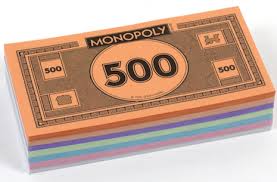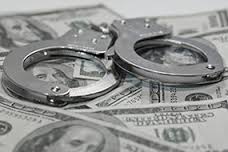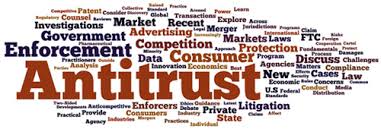Criminal Antitrust Enforcement for FY 2015
 The Department of Justice’s Antitrust Division is its own world – even in the area of criminal enforcement. Unlike other areas where criminal enforcement against individuals has lagged, the Antitrust Division has a strong record of prosecuting companies and responsible individuals. Approximately 3 individuals are prosecuted for every company that is criminal prosecuted. That is a pretty strong record.
The Department of Justice’s Antitrust Division is its own world – even in the area of criminal enforcement. Unlike other areas where criminal enforcement against individuals has lagged, the Antitrust Division has a strong record of prosecuting companies and responsible individuals. Approximately 3 individuals are prosecuted for every company that is criminal prosecuted. That is a pretty strong record.
The Antitrust Division’s engine is its leniency program; the first company to cooperate gets a pass, including its executives and responsible individuals. The company pays no fine and gets to keep its illegal proceeds from the cartel. Private litigants can sue for recovery of damages but in the long run, a cartel leader can do pretty well if it wins the race to DOJ’s doors as the first company to cooperate.
The Antitrust Division had a great year in 2015, largely because of its focus on the financial sector. Total fines recovered reached $3.9 billion, and $2.8 billion of that was paid by financial institutions for manipulation of foreign exchange rates. Citicorp, for example, paid $925 in fines for its role in the foreign exchange cartel. Another $775 million was recovered from Deutsche Bank as part of the LIBOR investigation.
Aside from the financial sector, the Antitrust Division continued to collect fines from companies involved in the auto parts investigation, with Kayaba Industry and Robert Bosch leading the pack and paying $62 million and $57.8 million, respectively.
Eight individuals were sentenced to jail time this past year, and more are expected this next year from the ongoing auto parts and real estate auction investigations.
The Antitrust Division’s auto parts investigation has been a record-setter in many respects. The investigation involved close cooperation with other enforcement agencies in Asia and Europe and has been unprecedented in its scope and impact over a seven-year period.
A potential game-changing investigation is building involving manufacturers of capacitors. A company has plead guilty and is cooperating in the investigation against other potential defendants. The capacitor industry is huge and involves a large segment of electronic products.
The Antitrust Division continues an active investigation of the ocean shipping industry, focusing on cars and trucks. Three ocean freight executives were indicted and charged with a price fixing conspiracy for international shipments.
All eyes are also watching an ongoing civil investigation of generic pharmaceutical companies. While the investigation is a civil matter, if the Antitrust Division develops evidence of collusion there could be reason to start a criminal grand jury investigation. Given all the controversy swirling around pharmaceutical pricing, an investigation of the generic industry could have a far-reaching impact.
Two other significant developments occurred recently – in policy pronouncements, Antitrust Division officials have indicated an open mind to re-examining credit for effective ethics and compliance programs for companies. In one case this year, the Antitrust Division gave Kayaba, the auto parts company, a significant reduction I the applicable fine because of its remediation efforts and compliance program. Such an incentive would be welcome to increasing corporate focus on antitrust compliance programs.
 The impact of the Yates Memorandum on the Antitrust Division is likely to be minimal since the Antitrust Division’s Leniency Program has been guiding corporate cooperation efforts with an appropriate focus on individual prosecutions. The impact is likely to occur in the evaluation of companies that cooperate after the initial leniency applicant – the second and third companies who cooperate in a cartel case, for example, may receive greater credit if they deliver culpable individuals in their own company while also informing against other companies involved in the cartel.
The impact of the Yates Memorandum on the Antitrust Division is likely to be minimal since the Antitrust Division’s Leniency Program has been guiding corporate cooperation efforts with an appropriate focus on individual prosecutions. The impact is likely to occur in the evaluation of companies that cooperate after the initial leniency applicant – the second and third companies who cooperate in a cartel case, for example, may receive greater credit if they deliver culpable individuals in their own company while also informing against other companies involved in the cartel.















